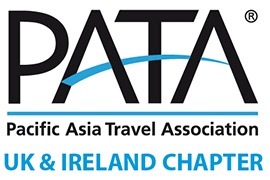A commercial property lawyer explains your rights and obligations during the coronavirus pandemic
Rebecca Cleal, senior associate and commercial property expert at law firm Prettys, explains what you need to know if you’re a travel agent renting a property on the high street during the Covid-19 pandemic
There is no doubt that the impact of Covid-19 is going to have a significant impact of unknown proportions across the property market, and the travel industry is undoubtedly one of the most affected sectors.
If you rent commercial premises on the high street, or anywhere else, then my advice below sets out what you need to know and what you should do next.
Rent payments
Your key concern will be payment of your rent under your tenancy and what will happen if you cannot afford to pay. Usually, where a tenant is in breach of the terms of the lease (such as non-payment of rent), a landlord could choose to exercise its right of “forfeiture” (or termination) under the provisions of the lease. Section 82 of the Coronavirus Act 2020 provides that tenants of a “relevant business tenancy” will be protected from forfeiture for non-payment of rent until 30 June 2020.
This does not mean that the rent will be “waived” but that no forfeiture action can be taken by the landlord until 30 June (and this period may be extended).
You must speak to your landlord as early as possible if you anticipate not being able to pay your rent. You should also agree with the landlord how and when you are going to repay the rent that you owe, whether any interest will be payable on that amount and how any rent reviews will be treated if they arise before 30 June. Any agreement should be properly documented in a formal written rent deferment agreement, signed by both landlord and tenant.
You should make sure that all the other obligations in your lease are complied with, including insurance and service charge payments and also keeping the property in good repair in accordance with the terms of your lease. A landlord could still choose to forfeit your lease for breach of these conditions (albeit they may have difficulty obtaining access to the courts due to social distancing).
There is also nothing to prevent the landlord from choosing to exercise their rights of recovery under the Commercial Rent Arrears Recovery (CRAR) process, but this would also require access to court services professionals.
Collaboration with the landlord at an early stage is by far the best course of action.
Rent deposits
If you have paid a rent deposit then there may be an opportunity for the landlord to draw down these funds in lieu of your rent payment. However, the landlord will expect these funds to be repaid and the advice above applies in that any repayment arrangements should be documented in writing and signed by both parties.
Business rates
Shops, which would include travel agency premises, will be eligible for specific business rates relief due to the coronavirus epidemic for a period of 12 months and should be applied automatically to your April 2020 business rates invoice. If you have any queries with your business rates invoice, you should contact your local authority’s business rates department.
Insurance
You should speak with whoever insures the building you occupy and whoever provides the contents insurance – these may be different companies if your landlord insures the building.
You will need to take their advice on what measures are required to keep the premises safe if they are not being occupied so that the insurance conditions are not breached.
The Association of British Insurers advises that as long as business owners have followed the risk management advice provided by their insurer and have taken reasonable endeavours to ensure the premises are suitably secure, they will still be covered.
Some insurers will require cases to be referred before agreeing, as this relaxation may not be appropriate for higher hazard risks.
Break clauses
If your lease benefits from a break clause and you have decided that you want to formally bring your lease to an end, you should ensure that you take specific legal advice before exercising the break. Many break clauses have specific conditions attached, which are strictly interpreted by the courts, and you will need to make sure any notice is served in the correct manner and on the right people in order to be valid.
If you require any further advice on commercial property matters, please contact rcleal@prettys.co.uk or post a comment in the feedback box below.
















